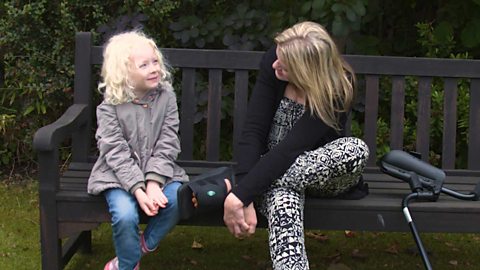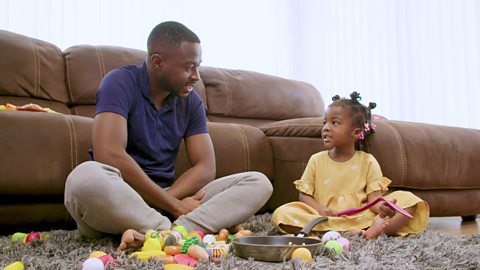Children's mental health specialist Dr Pooky Knightsmith outlines some simple ways you can help with children's confidence in their early years.
The world can feel big and scary when youâre a toddler and youâre constantly faced with new people, places and situations. You may be starting nursery for the first time, visiting the dentist or meeting new family friends.
But there are some simple things that you can do to gradually build your toddlerâs confidence so that they can join in rather than shy away from situations they might enjoy.
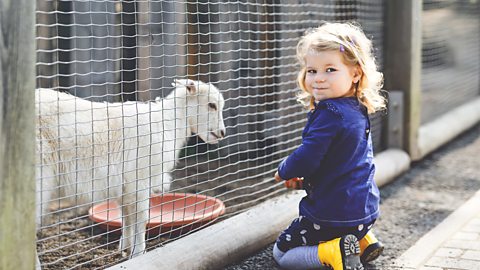
1. Love the child you have
First things first, itâs important to unconditionally love the child you have and to make them aware by voicing your love for them.
Your child needs to feel and hear you loving all the things that make them brilliant.
They may not be as confident as other kids their age, but there are a hundred other things that make them a brilliant little person.
Build their confidence by reminding them often of the things you love about them. Itâs great to help kids overcome their shyness, but they need to know that we love them regardless of whether they manage to do the things that scare them.
2. Build a safe base
Confidence starts with children knowing that they have a safe base to return to.
A child who knows their parent or carer loves them, has their back and will be waiting for them when they return, will feel bold enough to take the first steps away from that parent or carer.
Be consistent with them; give them reason to trust you and never trick them by sneaking away when their back is turned.
3. Avoid negative labels
The story adults tell about a child is the story a child will, in turn, tell about themselves. So if your child keeps hearing that theyâre a âshy kidâ, then thatâs who theyâll be.
Try to avoid negative labels and find more positive ways to frame your childâs behaviour. Perhaps they like to think before they speak, or maybe they like to watch and learn from others before having a go themselves.
4. Build confidence through simple tasks
Think about how you can support your child to build their confidence and independence in day-to-day tasks.
Overcoming the challenges of doing things that feel hard while in a safe situation at home can build their confidence when they try other hard things too.
A child who has learned to put their own clothes on (even though it was tricky and they didnât get it right at first) is a child who thinks âI can!â and might feel a little more confident joining in at the park.
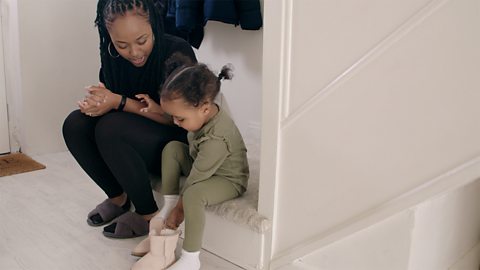
5. Be an empathetic role model
Some of the things we expect children to do would feel terrifying to us as adults. They are often faced with new places, people and activities and expected to take it in their stride.
New things are scary for many people. If you sometimes feel a little worried in new situations, let your child know. Tell them your tips and tricks for managing those moments and let them know that how they feel is normal.
Talk about how worry physically feels in your body and notice how it settles after a while as the new scary thing starts to feel a little more familiar and safe.
6. Plan ahead and practise with role play
When encountering new situations, it can help to think ahead with your child and to explore with them what they might expect. Are there any things in the new situation that are familiar? Activities or people that theyâve encountered before can make a novel situation feel less worrying for a child. Talk through whatâs likely to happen, where youâll be and what your child can do if theyâre worried. You can take this one step further by role-playing it together and practising what your child might do and say. You can make this fun by using toys to represent different people.
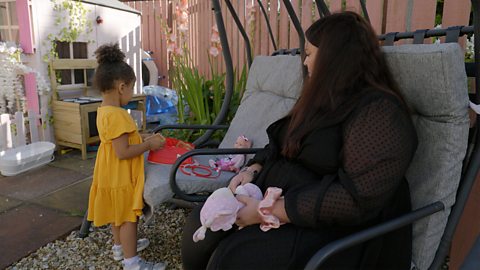
7. Routines, rituals and repetition
Routines and rituals can make things feel more familiar and less worrying for a child. Think about the things that you can keep the same, even when other things are changing. If youâre going to a new place, you could think about keeping your routines and rituals for getting ready and leaving the house the same. You might also develop a ritual for saying goodbye as your child begins to feel ready to be parted from you. Repetition is also helpful. Most of us will feel a little worried the first time we try something, but itâs easier the second time. Once weâve done it a few times, it feels familiar and less worrying. When trying to add new regular elements to your childâs life, lean on routines, rituals and repetition to help build confidence.
8. Support small steps
Small steps are a great way to build a childâs confidence. Instead of thinking âthey canât do thisâ wonder â âwhat could they do?â Break it down and consider how you can support your child to take the next tiny steps. Donât be tempted to compare your child to other children, instead think about the next best step for your child. That might mean a few steps in the door and just taking in the new surroundings for a while. It might mean observing from the sidelines rather than joining straight in. Or it could mean having you participate alongside them while they build their confidence in the new situation.
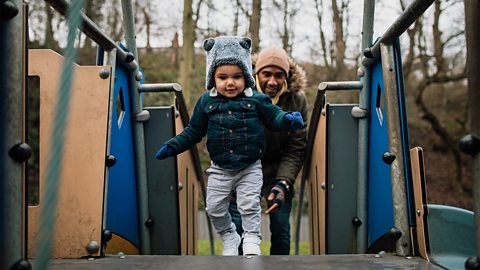
9. Notice each small step
Agree tiny steps with your child and make sure they see you noticing them succeeding. Depending on your child this might be a big whoop and a cuddle or it might simply be a nod and a smile. Either way, notice your child succeeding and as they begin to feel less worried with this step, consider what the next small step might be. Your child might need plenty of reassurance that theyâre safe and theyâre doing well, but the feeling of personal success combined with the pride of an adult they love will often fuel children to be brave enough to tackle the next step.
The world can be daunting when youâre a toddler, but with loving adults around who notice what theyâre doing well and who help them to feel safe, their confidence will slowly, but surely grow.

